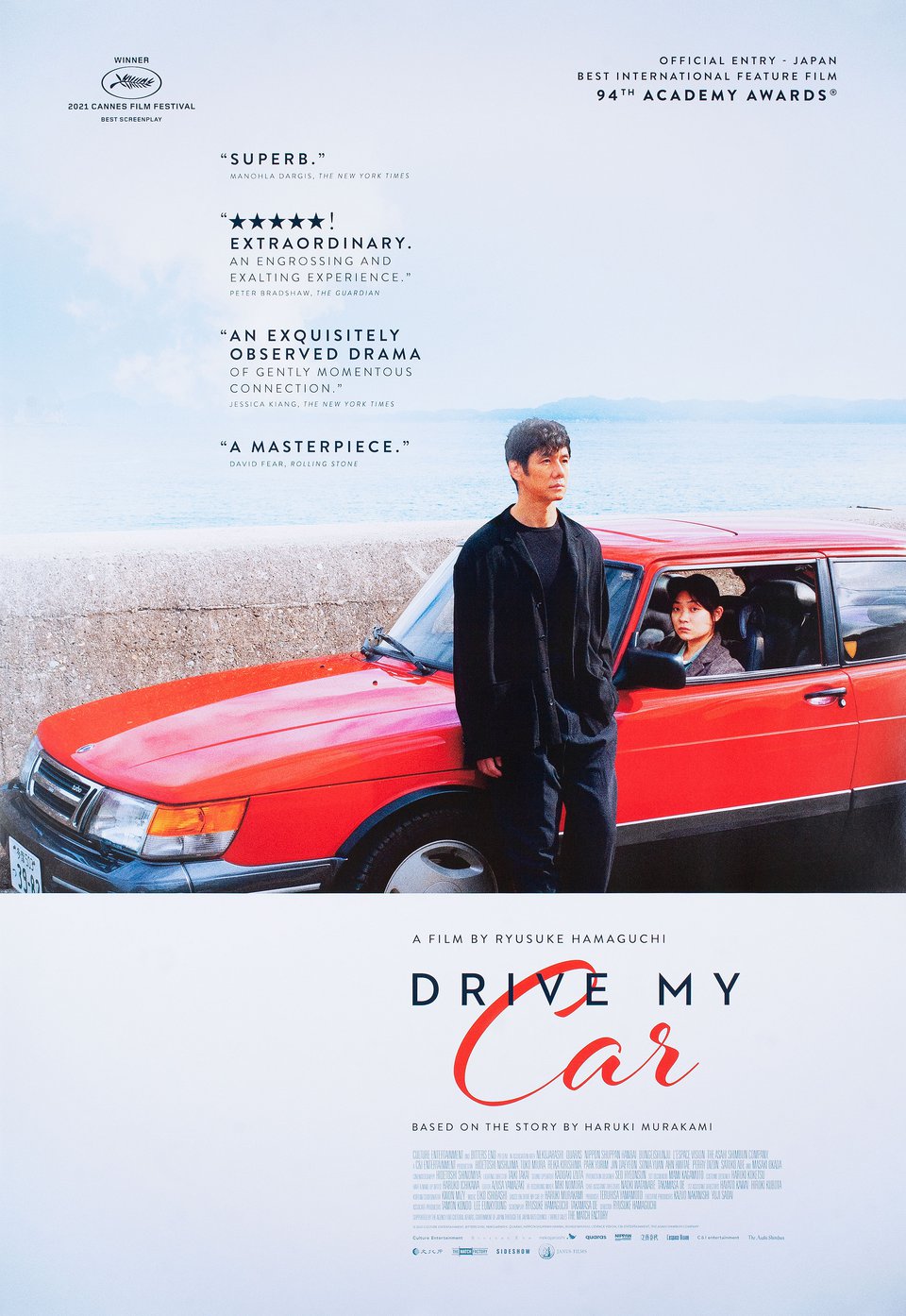

“But even if you think you know someone well, even if you love that person deeply, you can’t completely look into that person’s heart.”
Ryûsuke Hamaguchi’s widely over-acclaimed Drive My Car expands a Haruki Murakami short story out to a gratuitous three hours, disguising its shallow intellectual ambitions and meager emotional insights under lifeless dramatics, forced quirkiness, faux-transcendentalist formalism, and needless sermonizing of its themes.
It centers on Yūsuke Kafuku (Hidetoshi Nishijima), a middle-aged actor and theater director whose wife, Oto (Reika Kirishima), writes for television. Little about the film’s protracted prologue—which describes the couple’s staid marriage, their peculiar techniques for memorizing lines and coming up with new ideas, Yūsuke’s glaucoma diagnosis, and Oto’s infidelity with a young actor named Kōji (Masaki Okada)—would suggest that the wife’s sudden death of a brain hemorrhage would leave the husband devastated. It would be devestating in real life, of course, or if the drama weren’t held at such a cool distance. And so it makes sense from a narrative perspective that Yūsuke’s ensuing oversight of an experimental production of Chekov’s Uncle Vanya at a festival in Hiroshima, in which each cast member speaks a different language, would take on a cathartic emphasis for the widower.
He casts Kōji—the young man he witnessed balling his now-deceased wife—in the starring role for reasons that are left vague until the characters start expressing themselves in long-winded speeches about grief and guilt and redemption. Meanwhile, for insurance purposes, he is chauffeured by a young woman (Tōko Miura) whose stoic disposition conceals her own traumas. The odd pair are meant to be the means of personal deliverance for one another, but the lengthy sequences of silent driving and occasional conversation pale in comparison to the single image of their hands holding their cigarettes out of the car’s moonroof.
The swollen runtime is the film’s largest issue, which is not to say that its pacing or its length are inherently problematic, but that the great epiphany that Hamaguchi and co-writer Takamasa Oe want to lead us to—that art can serve as a healing balm for the grieving, that it is an essential element of human flourishing, and that practicing it is a fundamentally vulnerable act—doesn’t benefit from the screenplay’s overt philosophizing nor its affected attempts to enliven its lethargic drama with a murder charge and sexual kinks. It works best when it dramatically explores its themes without being explicit—when Yūsuke listens to the tapes of his wife reading lines, for instance. A film that dug into its themes through its story and didn’t try to prop itself up with pretentious eccentricities and transparent lecturing would have been much better, and much shorter. Instead, we get a turgid cinematic essay that suggests vast, unspoken interior lives for its characters but revels in keeping them hidden. Such a film can be dissected and discussed, but it’s hard to love.